As CEO of a hospital in northern Ontario, Adam talks about how he recruits doctors, the challenges his communities face and what a hospital can mean to a small town.
“I started my career in accounting and worked in the forestry and mining industries. I eventually moved to Chief Financial Officer of this hospital. It took me many years to figure out that the healthcare business is not about money, it’s about people. In 2013, I became the CEO here at Wilson General Memorial Hospital.”
“As hospital CEO, how do you know what people want?”
“The communities our hospital serves are small – 7,500 people total. You can really keep your finger on the pulse just by living here. We do the surveys like all good healthcare administrations do, but it’s really about being in the community and making sure you go to the coffee shops and the community events.”
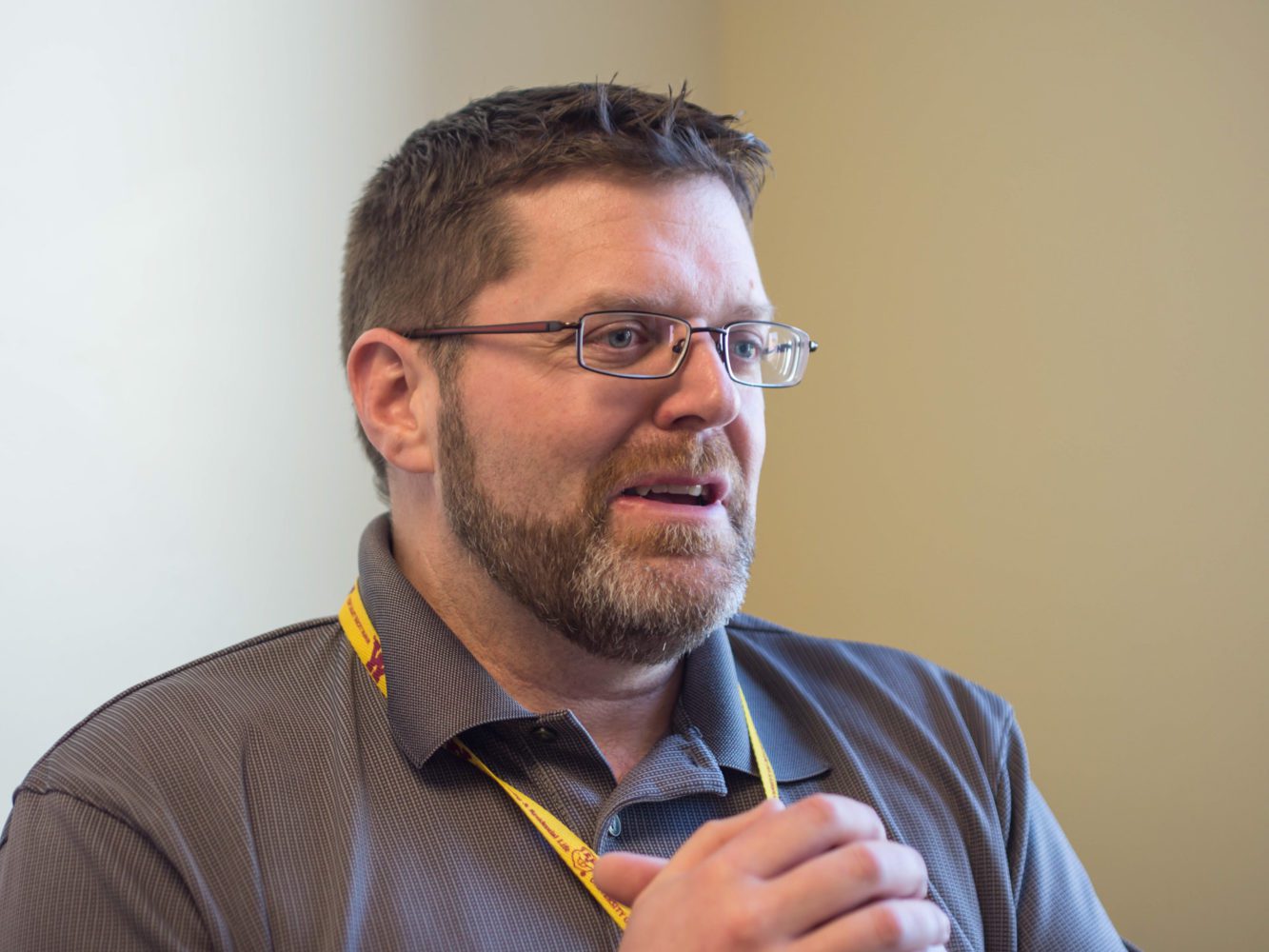
“Your community has been successful attracting family doctors. How have you done it?”
“It’s been a conscious effort actually. We have a physician recruitment and retention committee. We have funding from the hospital, the clinic, the municipality and our main industry in town here, the mine. We have a great local golf course. We don’t throw money at our doctors, that’s a losing game. But it’s all about attention to detail. Like many people I have a four-wheeler, a quad, like we call it up here. I have lent out my quad to visiting locums at least two dozen times this year.”
It’s a big deal for somebody from Toronto to get on a bike, go into the bush and get stuck in some mud. That’s fun stuff! It’s fun for me as well.
“Those little experiences that we give to the doctors make it a memorable trip for them. They are not just coming up here and making the good money that they make; they’re having a vacation too.”
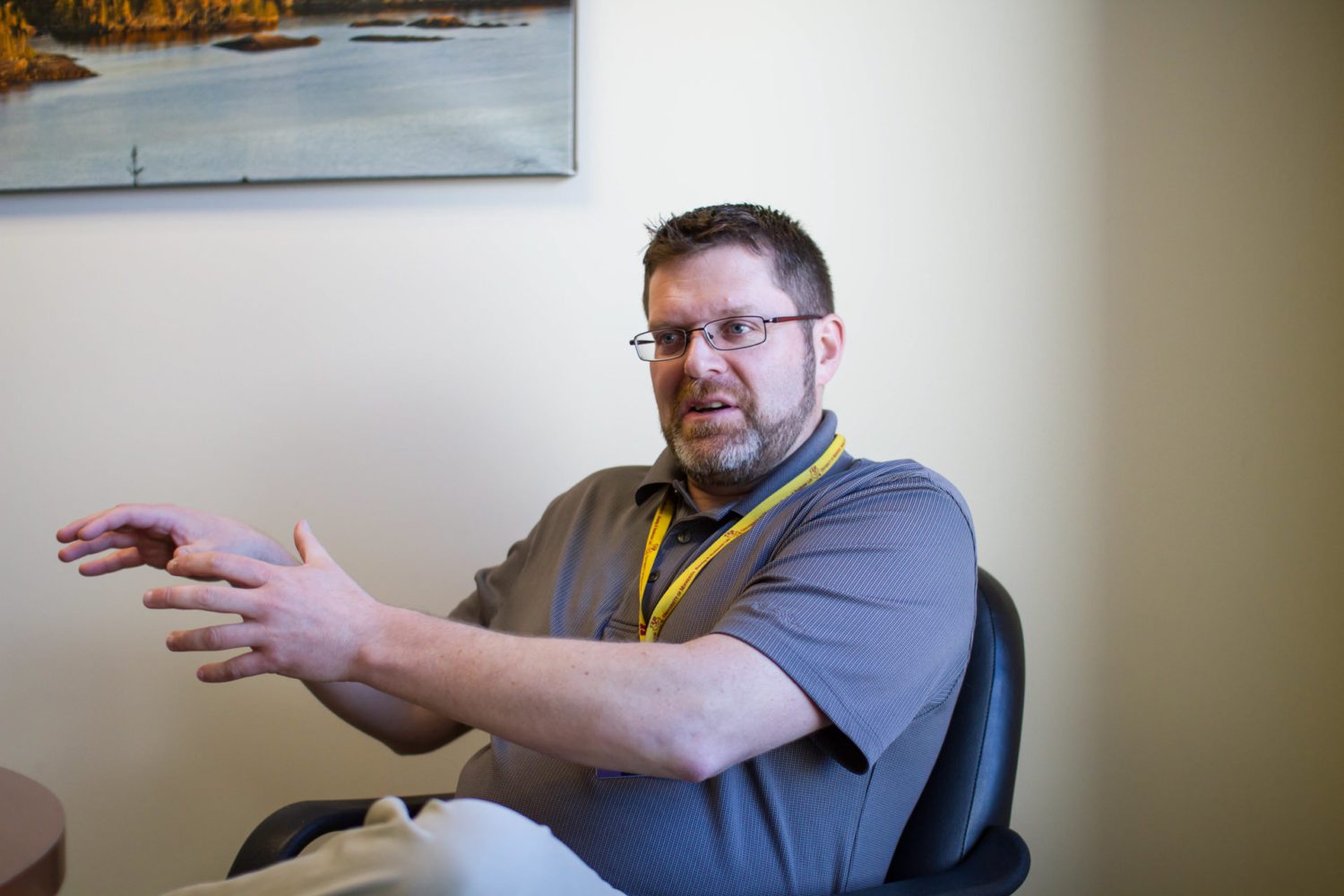
“We have worked hard to bring in some services that you wouldn’t necessarily have in other small northern towns. We pay for a colonoscopy program and a cataract surgery program, for example. You’d much rather not do your preparation for a colonoscopy in a hotel room in Thunder Bay! And if you’re a 75-year-old retiree with cataracts, it’s a little bit tough to drive four hours to Thunder Bay. The ophthalmologist comes from near London, Ontario. We have had a 15-year relationship with him. He’s a pilot; that’s his hobby. So he gets to engage in his hobby, fly his plane up here, do cataracts and fly home.”
There’s an understanding when you live in a small remote community that you are not going to have everything.
“We know we’re not going to do open heart surgery, we’re not going to deliver as many babies and not going to do C-sections. But that’s okay as long as we have a fully functioning emergency department and we have a good primary care system.”
“What would people say isn’t working as well as they think it should?”
“It’s easy to point fingers. Primary care wait times are still a problem. To get a same day appointment is very difficult. There is a wait time to get into long term care and there are not enough beds. You go from your house or your apartment to the hospital and back, but there’s no transition housing. There are no long-term care or rehabilitation facilities. We are working on that in our community.”
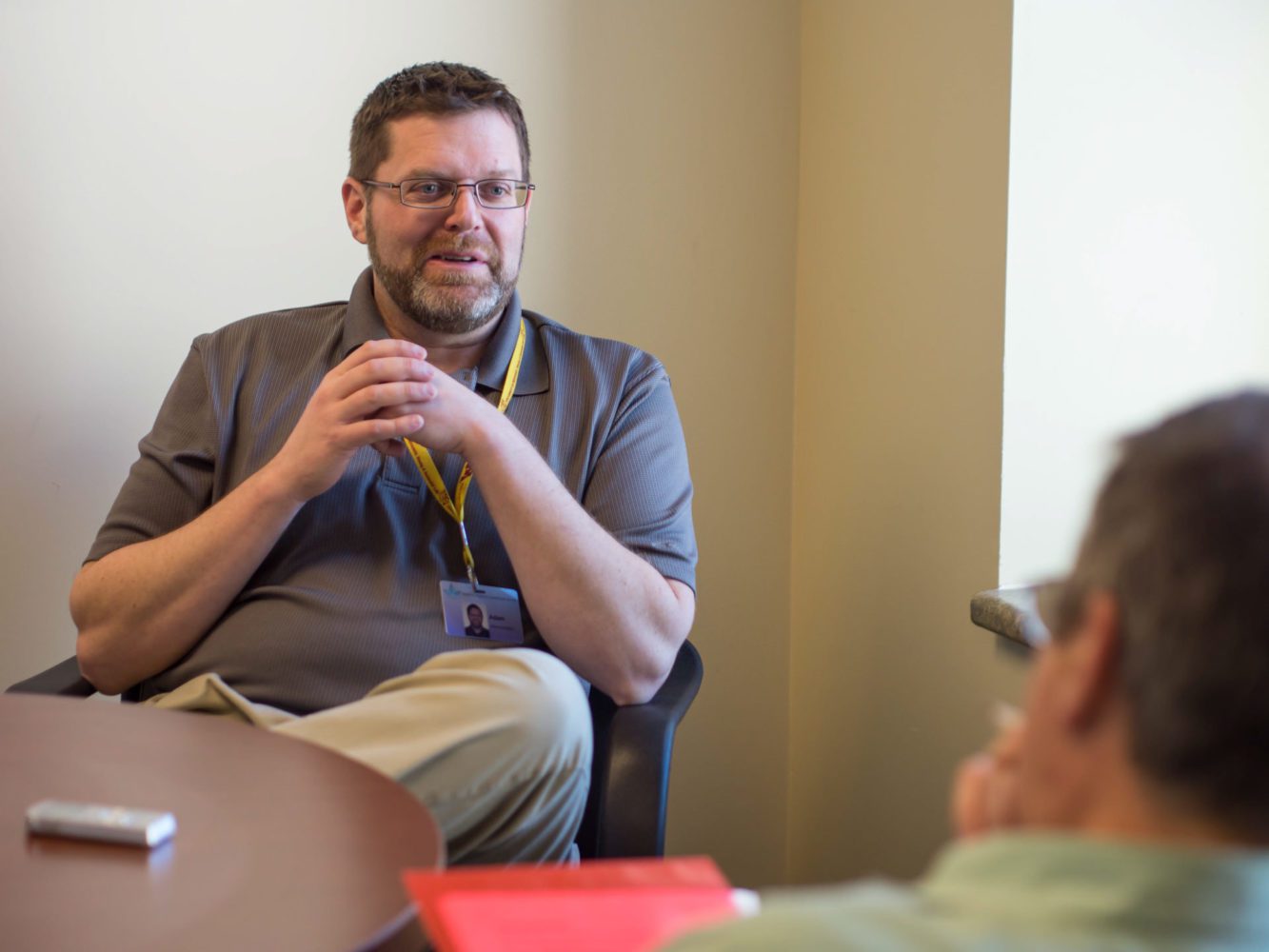
“In this town, our hospital budget was $6.5 to $7 million dollars. With that we had to pay for equipment, keep the heat and lights on, pay for staff, and also do accreditation, quality improvement plans, strategic planning, and on and on. We were just too small. So we started working with The McCausland Hospital in Terrace Bay on a merger.”
“In 2013, we took the plunge and signed a joint board agreement. I am now CEO of both hospitals. Just in administration alone we probably save $400,000 a year, which doesn’t sound like a lot of money but that’s significant. That’s four nurses. That’s the way I think of it.”
“I grew up like everybody else playing hockey, so you would know people in the other community more as competitors. Social media has really changed that — my kids have friends there now that I would have never have had. But there’s still that competitive nature. That’s why it’s taken us eight years — saying the right things and then actually doing what you say. We are kind of the central community in our region and the fear from the other community was that we were going to take over. I am still coaching hockey, so I’m in both communities and at the arenas. I travel at least two days a week there. Also, I do lots of trips to Thunder Bay and every time I am coming back from Thunder Bay, even if it’s midnight, I stop in and say hi.”
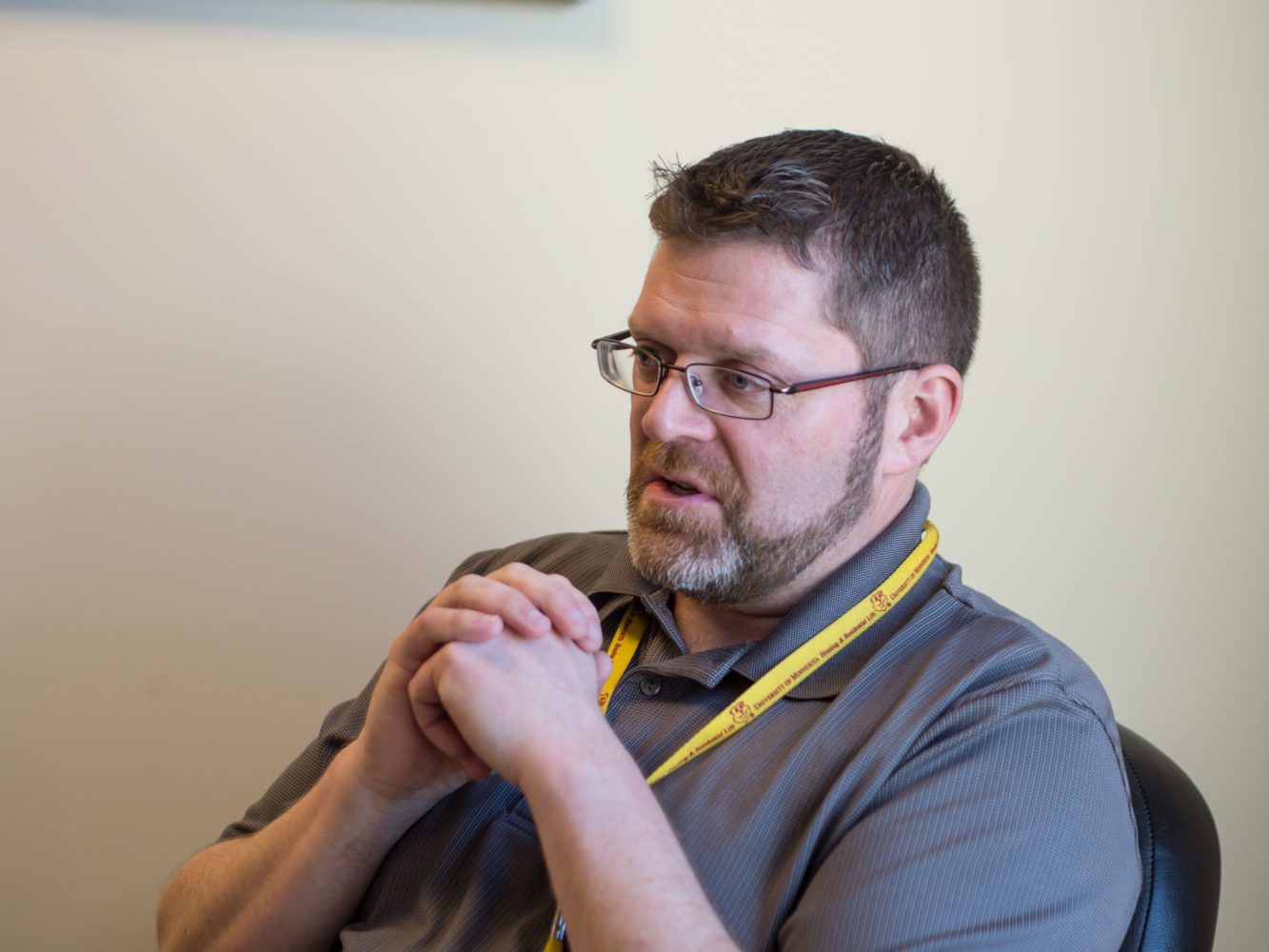
“What does a hospital mean to a small northern community?”
“If I am a young person with a family or an older person, that’s one of the basic requirements of where I want to live. If I look at a town an hour drive from here, they’ve got a very successful saw mill, a mine nearby and a CP rail facility. But that community has never advanced beyond a thousand people, and I think much of that is because there’s not a hospital in the community. A hospital is a recruitment and retention tool for industry in the community. And more importantly, it provides a certain comfort that you know if you go to work and get hurt or your mother gets cancer, she can get treatment right in her own community and not have to zip off 300 kilometres to the city.”
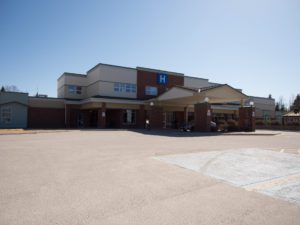 “There’s all the unmeasurables, the pride, the recruitment, retention, that sort of thing. Or you could make it a simple math problem. Our emergency room has 7,000 emergency department visits a year. Granted, some of them shouldn’t be in emerg. But let’s say half are legitimate visits. If this hospital wasn’t here, they would have to go to Thunder Bay, some in a helicopter or a plane. You can imagine how much that costs. And some wouldn’t get treatment at all and our community health outcomes would decline. Recently a local fellow had a colonoscopy here and had cancer discovered. He told me that if this program wasn’t here, even though he had symptoms, he just wouldn’t have gone to Thunder Bay. So that fellow, he might have died.”
“There’s all the unmeasurables, the pride, the recruitment, retention, that sort of thing. Or you could make it a simple math problem. Our emergency room has 7,000 emergency department visits a year. Granted, some of them shouldn’t be in emerg. But let’s say half are legitimate visits. If this hospital wasn’t here, they would have to go to Thunder Bay, some in a helicopter or a plane. You can imagine how much that costs. And some wouldn’t get treatment at all and our community health outcomes would decline. Recently a local fellow had a colonoscopy here and had cancer discovered. He told me that if this program wasn’t here, even though he had symptoms, he just wouldn’t have gone to Thunder Bay. So that fellow, he might have died.”
A local hospital provides a reason for kids to go to school.
“You can grow up to be a nurse and make a good living in your community. Between our two sites we have 180 employees and many of us are paid well. We’re an important part of the economic fabric of the community.”


The comments section is closed.